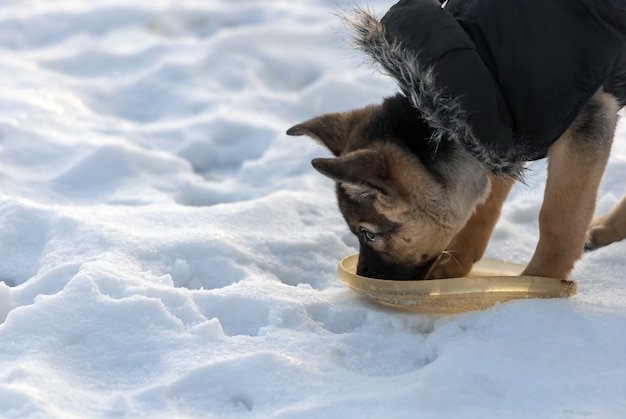Winter Wellness Exams: Ensuring Pet Health in Fort Collins

Winter Wellness Exams: Ensuring Pet Health in Fort Collins
As winter settles over Fort Collins, many pet owners begin to notice subtle changes in their pets’ behavior and health. Crisp temperatures, icy sidewalks, and shorter days can all impact your furry companion’s well-being, making this the perfect time to think about a winter pet wellness exam. At Harmony Road Veterinary Clinic, located at 309 W. Harmony Road, Fort Collins, CO 80526, our experienced veterinary team is committed to helping your pets stay healthy, comfortable, and happy all season long. In this guide, we’ll explore why winter wellness exams matter for pets in Fort Collins, what to expect during your visit, and how preventive care protects your four-legged family members from seasonal challenges.
If you’re searching for a quality vet near me or need a comprehensive Fort Collins vet checkup, Harmony Road Veterinary Clinic offers personalized care plans tailored to your pet’s unique needs. We’ll walk you through the benefits of winter wellness exams, discuss signs your pet may need extra attention, and highlight how our veterinary professionals support your pet’s health with advanced diagnostics, preventive strategies, and ongoing guidance. For pet owners looking to catch issues early and ensure long-term vitality, now is the time to schedule your pet’s winter wellness examination. Learn more about our comprehensive pet exams and how they can make a difference this season.
Recognizing When Your Pet Needs a Winter Wellness Exam
Winter brings a unique set of challenges for pets in Fort Collins and surrounding communities. While many pets love the crisp air and occasional snowfall, colder months can also trigger health issues or exacerbate existing conditions. Recognizing when your pet may benefit from a winter pet wellness exam is essential for proactive care.
Common signs that your dog or cat could use a seasonal checkup include changes in appetite, energy, or weight. You might notice your pet is less playful, more reluctant to go outside, or seeking warmth more often than usual. Other indicators to watch for are increased stiffness or limping, especially in older pets, as cold weather can aggravate arthritis and joint discomfort. Dry, flaky skin, a dull coat, or signs of itchiness often point to winter-related skin problems. Additionally, excessive shedding, sneezing, coughing, or nasal discharge can be warning signs of respiratory or environmental sensitivities.
If your pet seems withdrawn, is sleeping more than normal, or shows signs of discomfort after walks on icy surfaces, these changes are worth discussing with your veterinarian. Even small shifts in behavior or routine can reveal underlying health issues that a thorough Fort Collins vet checkup can help detect early.
Why Winter Presents Unique Pet Health Challenges in Fort Collins
The climate in Fort Collins is known for its cold snaps, dry air, and sporadic snowfalls. Pets experience these changes differently than humans, and their health can be impacted in several ways during the winter.
One of the most common seasonal issues is joint stiffness, particularly for senior pets or those with orthopedic concerns. The drop in temperature may intensify discomfort, making movement challenging. Icy conditions can also pose a risk for slips and falls, leading to minor injuries or aggravating chronic conditions. Additionally, the air inside homes becomes drier during winter, which can dry out your pet’s skin and coat.
Shorter daylight hours often mean less exercise for pets, contributing to weight gain and reduced muscle tone. This, in turn, can impact heart health and overall vitality. For dogs that enjoy outdoor play, exposure to road salt and de-icing chemicals can irritate paw pads or cause gastrointestinal upset if licked off.
Cats that spend time outdoors face their own set of risks, such as frostbite or hypothermia if left outside too long. Even indoor cats can experience behavioral changes due to decreased stimulation or limited access to sunny spots.
In Fort Collins and the surrounding area, respiratory concerns can also rise during winter months. Closed windows and increased use of heating systems may concentrate dust, allergens, or even viruses inside the home, affecting pets with sensitivities or pre-existing conditions.
Understanding these factors helps pet owners appreciate the value of winter pet wellness exams in Fort Collins. By scheduling routine checkups, you give your pet the best chance at staying healthy, active, and comfortable through the coldest months.
What Happens During a Winter Pet Wellness Exam
A winter wellness exam at Harmony Road Veterinary Clinic is designed to address the specific needs of your pet during colder months. Our veterinarians begin by performing a nose-to-tail physical assessment, evaluating everything from your pet’s skin and coat to their joints, ears, eyes, and teeth. Special attention is given to detecting early signs of arthritis, weight changes, dental disease, and skin problems commonly seen in winter.
During the visit, our veterinary professionals may recommend diagnostic screening based on your pet’s age, history, and risk factors. For example, diagnostic laboratory services and digital radiology can provide valuable insights into internal health, mobility issues, or underlying conditions that might not be visible during a physical exam. Bloodwork, urinalysis, and imaging help us monitor organ function, check for hidden illnesses, and establish a baseline for future reference.
Our team will also review your pet’s vaccination status, parasite prevention, and any lifestyle changes that could affect their health in winter. We’ll discuss your pet’s diet and activity level, offering tailored advice to help maintain a healthy weight and optimal condition.
For pets with chronic health concerns, such as diabetes or heart disease, a winter wellness exam is an opportunity to fine-tune management plans and ensure medications or treatments are still effective. We encourage open communication during every appointment, so you can share observations, ask questions, and partner with us in your pet’s care.
Proactive Steps: Prevention and Home Care for Winter Pet Health
While a veterinary wellness examination is the cornerstone of winter pet care, there are several steps pet owners can take at home to support their companion’s health. Adjusting routines to account for colder weather can prevent injuries and discomfort, especially for older pets or those with medical conditions.
Ensure your pet has a warm, draft-free place to sleep, and consider using orthopedic bedding for pets with joint issues. Paw care is especially important in Fort Collins, where road salt or ice-melting agents are frequently used. Rinsing your dog’s paws after walks and applying paw balm can help prevent dryness or irritation.
For pets struggling with dry skin, using a humidifier indoors and feeding a diet rich in omega-3 fatty acids can make a significant difference. Regular brushing not only removes loose hair but also promotes healthy skin and improves circulation. Keep outdoor excursions brief on particularly cold days, and always dry your pet thoroughly after coming inside to prevent chills.
Exercise remains important in winter, but consider indoor play sessions or gentle walks during milder parts of the day. Monitor your pet’s weight and adjust their food intake as needed, since reduced activity can quickly lead to extra pounds.
Finally, stay up-to-date with vaccination services and parasite prevention, as some pests remain active year-round in Fort Collins. Your veterinarian can recommend a tailored prevention plan based on your pet’s needs and lifestyle.
When to Seek Veterinary Care for Winter Health Concerns
Certain signs indicate your pet needs prompt professional attention, regardless of the season. If your pet is limping, unable to get up, or shows signs of severe pain, contact your veterinarian right away. Other urgent symptoms include persistent vomiting or diarrhea, breathing difficulties, sudden collapse, or signs of frostbite such as pale, cold skin on the ears, tail, or paws.
Chronic issues that seem to worsen during the winter, such as increased coughing, changes in water consumption, or new lumps and bumps, should also be evaluated during a Fort Collins vet checkup. If you are ever unsure whether your pet’s symptoms warrant a visit, it is always safer to err on the side of caution and schedule an appointment with our veterinary team.
Harmony Road Veterinary Clinic is dedicated to building long-term partnerships with pet owners. Our veterinarians are here to answer your questions, address concerns, and develop preventive care plans that keep your pets healthy through every season.
The Harmony Road Difference: Your Partner in Year-Round Pet Wellness
Winter in Fort Collins brings both beauty and challenges, but your pet’s health does not have to be one of them. By prioritizing a winter pet wellness exam, you are taking an important step towards ensuring your companion’s comfort, longevity, and happiness during the coldest months. Our veterinary professionals provide thorough assessments, advanced diagnostics, and personalized recommendations based on your pet’s unique needs.
If you are searching for a trusted vet near me or want to schedule a comprehensive wellness examination with a caring team, Harmony Road Veterinary Clinic is ready to help. We proudly serve Fort Collins and surrounding communities from our convenient 309 W. Harmony Road, Fort Collins, CO 80526 location. To give your pet the best start to the season, contact our clinic to schedule your winter pet wellness exam or learn more about our comprehensive pet exams and preventive services.
You can reach our team at (970) 631-8199 for appointment scheduling and any questions about keeping your pet healthy this winter. We look forward to partnering with you to ensure many happy, healthy winters ahead for your beloved companion.
This article is intended for educational purposes only and should not replace medical advice from a licensed veterinarian. Always consult your veterinarian regarding your pet’s specific health needs or if you notice any changes in their condition.






















